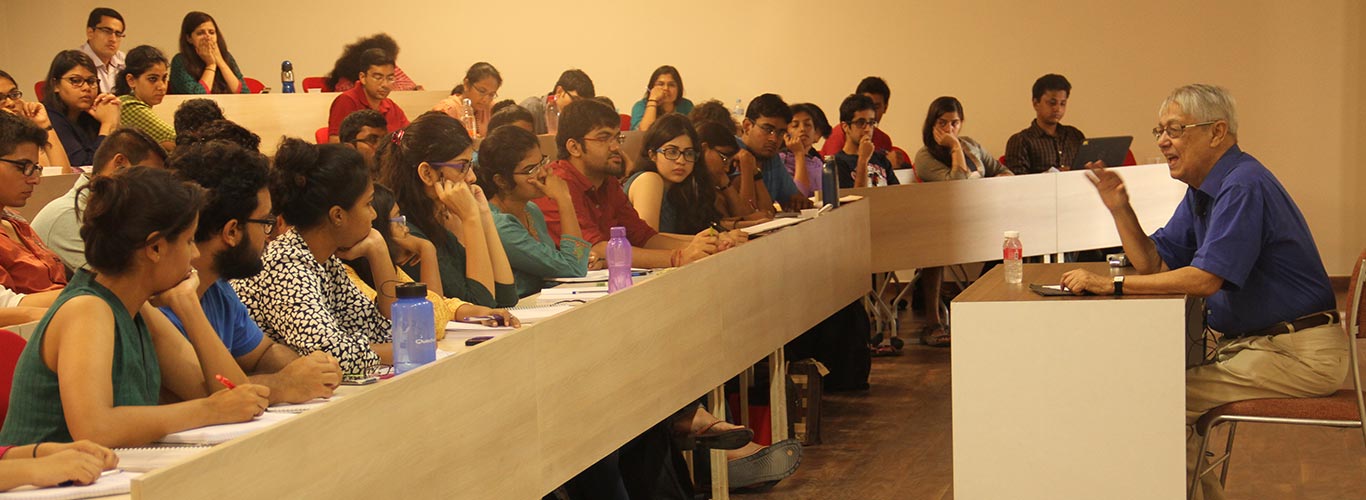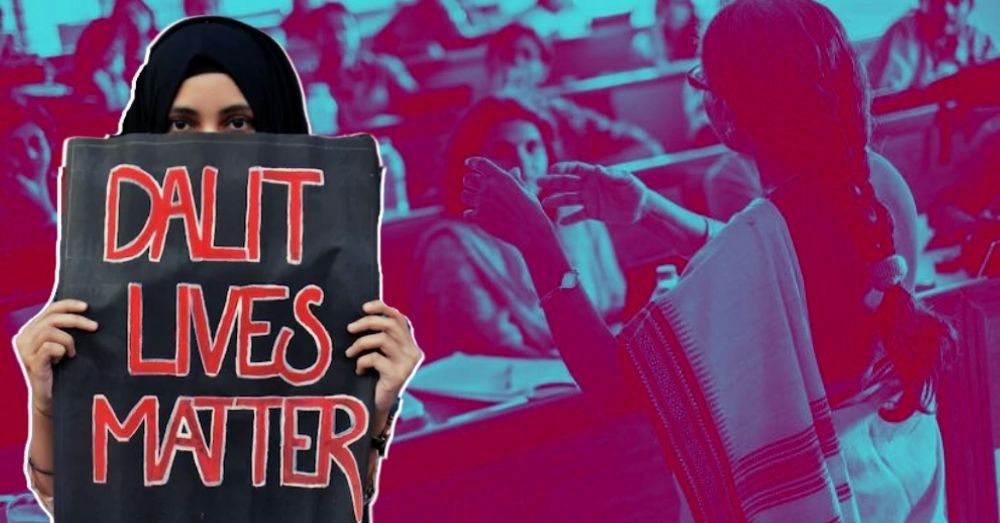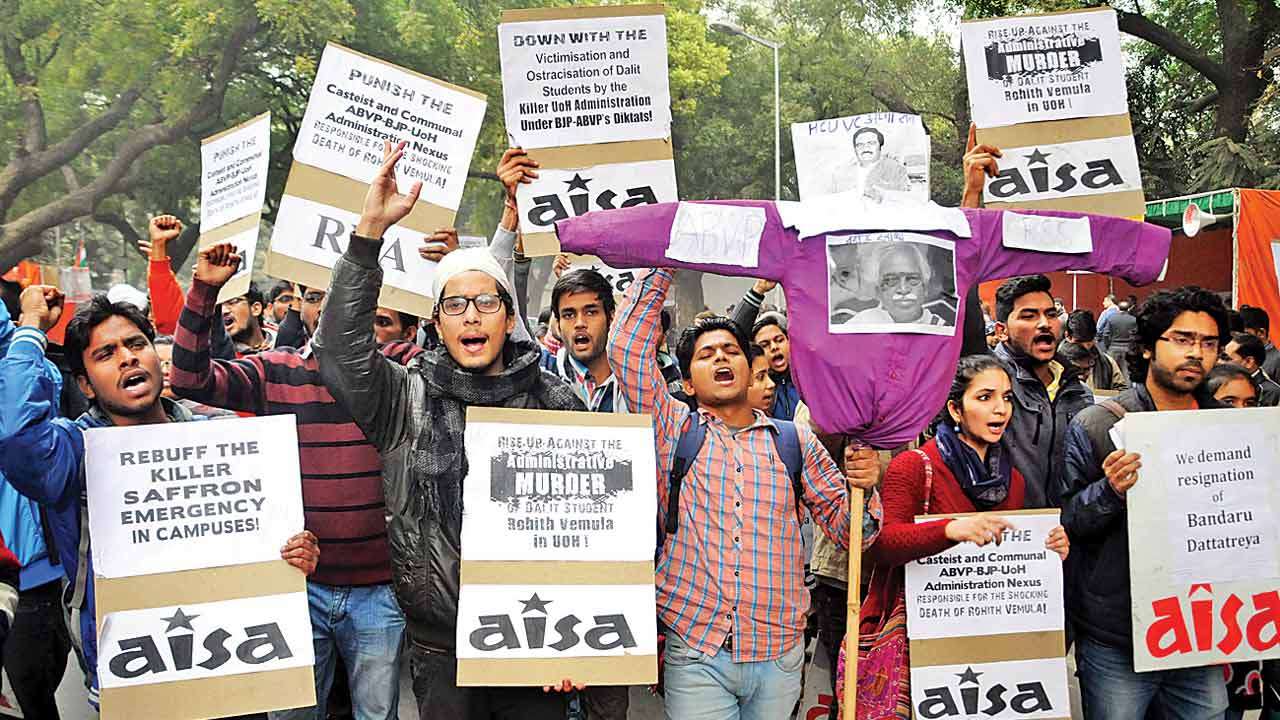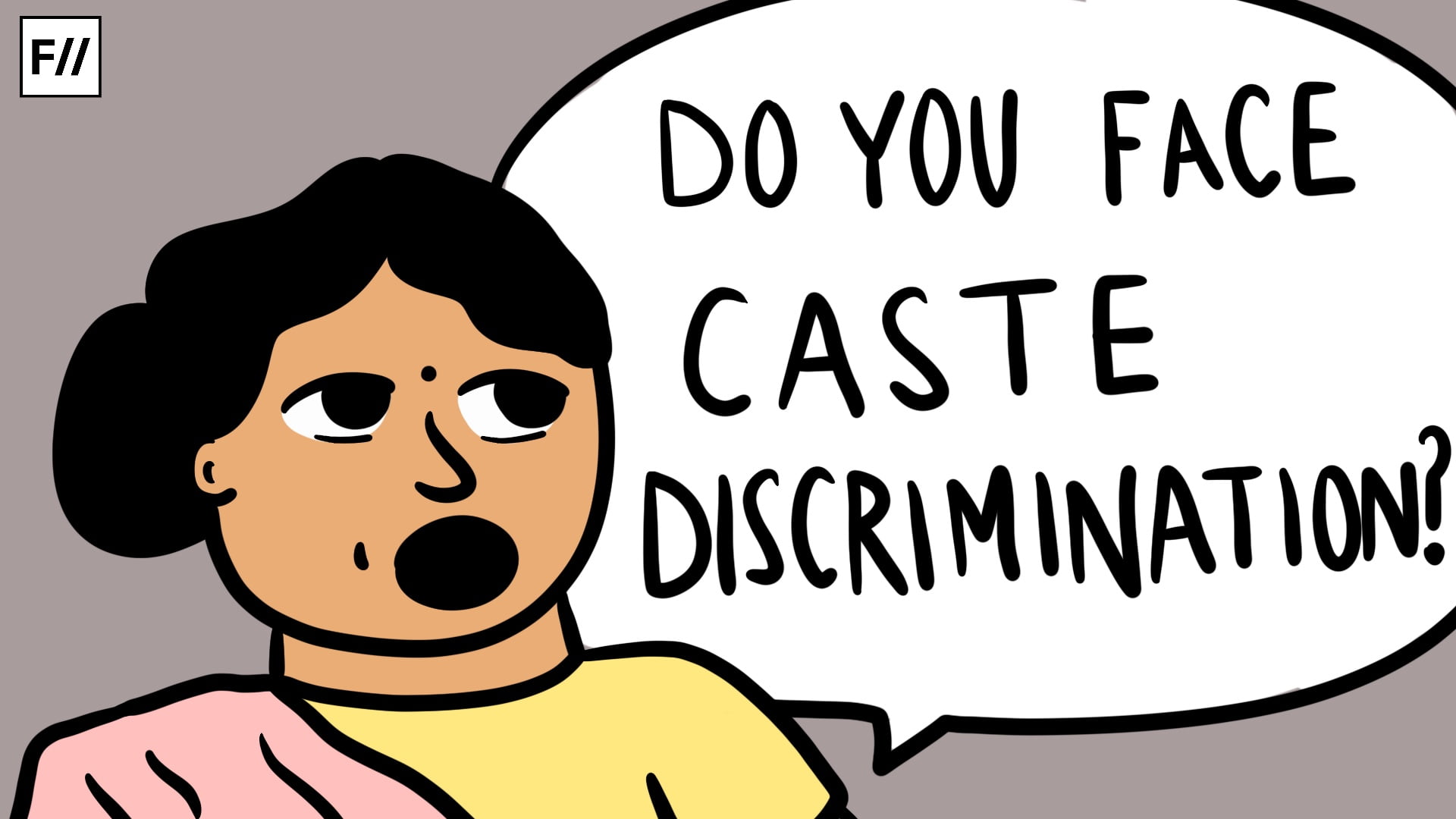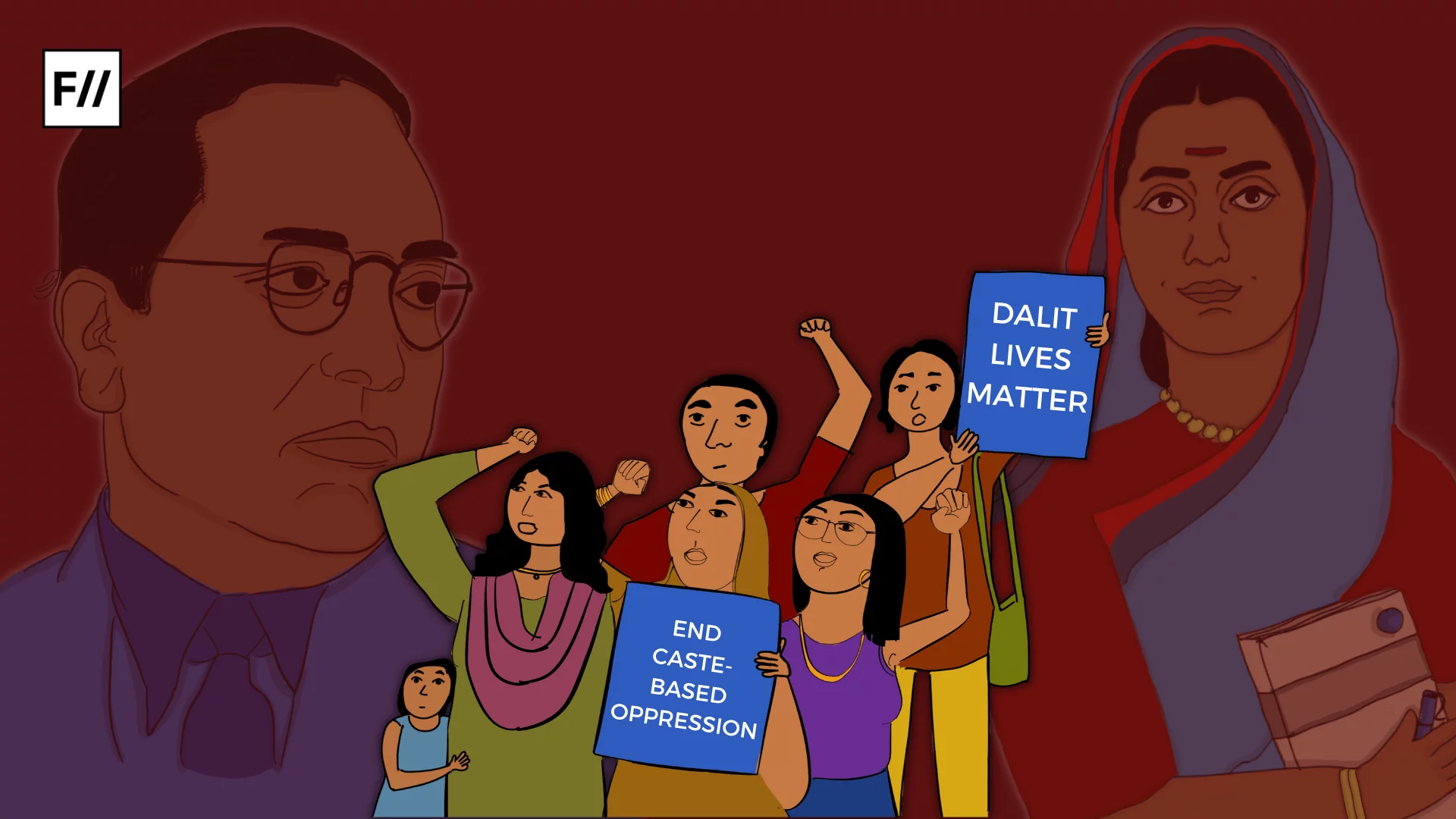The 1931 Caste Census brought about the milestone institution of the Mandal Commission or the Socially and Educationally Backward Classes Commission (SEBC). Ashoka University saw the smoke before there was a fire and swiftly snuffed out the question of caste census. If the rapidly privatised education sector is afraid of something, it is scholarships and the second-most daunting ask is reservation, albeit connected.
If the rapidly privatised education sector is afraid of something, it is scholarships and the second-most daunting ask is reservation, albeit connected.
Private universities in India often pride themselves on their diversity and global outreach, yet they seem to shy away from addressing one of the most deeply entrenched issues in Indian society: caste discrimination. The recent controversy at Ashoka University, where students were penalised for raising slogans against “Brahmanvaad” and “Baniyavaad,” highlights the conflict between the image and reality of these institutions, considering Ashoka’s proud publication of multiple diversity reports. It became a great selling point by international standards without investing in creating equitable grounds for education in India.
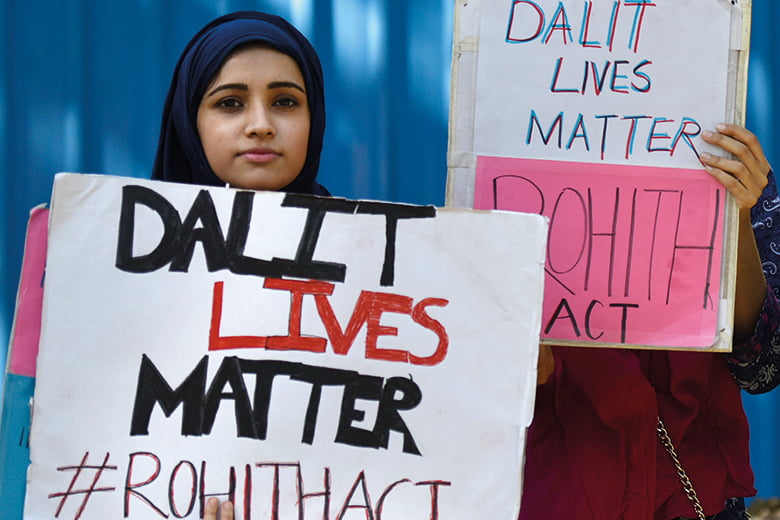
One of the defining features of private universities in India is their high fee structure, driven by profit motives rather than a commitment to providing equitable access to education. This profit-driven approach often results in these institutions being resistant to implementing reservation policies that would ensure representation from marginalised communities such as Scheduled Castes (SC), Scheduled Tribes (ST), and Other Backward Classes (OBC).
Ashoka University, like many other private institutions, boasts of its diversity, citing the number of countries, cities, and races represented on campus. However, it conveniently avoids engaging in conversations about caste, a glaring omission given the pervasive nature of caste discrimination in Indian society. The recent protest is a rare sight in private universities which rarely see students hoisting placards and hollering slogans at the administration.
The recent protest is a rare sight in private universities which rarely see students hoisting placards and hollering slogans at the administration.
The recent incident at Ashoka University, where students were labelled as “casteist” for protesting against Brahminical and capitalist hegemony, underscores the systemic casteism embedded within the privatisation of education in India. Instead of addressing the legitimate concerns raised by students about the lack of representation of marginalised communities on campus, the university chose to penalise them, further perpetuating the culture of silence around caste-based discrimination.
Caste discrimination in indian education
To understand the current controversy at Ashoka University and its implications for the broader discourse on caste discrimination in Indian education, it is essential to delve into the historical and structural factors that have shaped the country’s educational landscape.
Caste discrimination, rooted in the hierarchical social structure of Hindu society, has been a pervasive and enduring feature of Indian society for centuries. The caste system, which categorises individuals into distinct social groups based on birth and occupation, has resulted in systemic inequalities and injustices, particularly for those belonging to the lower castes, such as the Scheduled Castes (SC), Scheduled Tribes (ST), and Other Backward Classes (OBC).
Education has long been recognised as a powerful tool for social mobility and empowerment, yet access to quality education has been unevenly distributed along caste lines in India. Historically, members of marginalised caste communities have been denied access to education, relegated to menial tasks, and subjected to discrimination and segregation within educational institutions.
The advent of British colonial rule in India brought about significant changes to the education system, with the establishment of formal schools and universities aimed at training a class of administrators and professionals to serve the colonial administration. However, these educational institutions continued to perpetuate caste-based inequalities, with students from upper-caste backgrounds dominating the educational landscape while those from marginalised communities were relegated to the margins.
The Constitution of India enshrined the principle of affirmative action, providing for reservations in educational institutions and government jobs for SC, ST, and OBC communities.
After independence, the Indian government embarked on a series of initiatives aimed at expanding access to education and promoting social justice and equity. The Constitution of India enshrined the principle of affirmative action, providing for reservations in educational institutions and government jobs for SC, ST, and OBC communities.
The emergence of private universities in India
The last five years have seen 140 new private universities in India drawing big players from Ambani, Adani, Genpact to Piramal. Education, often hailed as the cornerstone of societal progress and individual empowerment, has undergone a transformative shift in India over the past few decades. The landscape of education, once dominated by public institutions, has witnessed a rapid proliferation of private educational enterprises across the country. While the privatisation of education has brought with it promises of innovation, efficiency, and global competitiveness, it has also raised concerns about equity, accessibility, and the commodification of knowledge.
Driven by the neoliberal economic policies of liberalisation, privatisation, and globalisation, private universities have proliferated across the country, offering a wide range of undergraduate, postgraduate, and professional courses in fields ranging from engineering and medicine to business and liberal arts.
The growth of private universities has been fueled by various factors, including the perceived advantages of autonomy and flexibility, the allure of foreign collaborations and partnerships, and the promise of modern infrastructure and facilities. However, behind the glossy façade of these institutions lies a complex web of profit motives, commercial interests, and market-driven imperatives.
Unlike their public counterparts, private universities operate on a for-profit basis, relying on tuition fees, donations, and corporate sponsorships to sustain their operations. This profit-driven model has led to a commodification of education, where students are viewed as consumers and education is treated as a commodity to be bought and sold in the marketplace.
The privatisation of education and caste discrimination
The commodification of education, driven by profit motives and market forces, has led to a commercialisation of knowledge, where education is treated as a commodity to be bought and sold in the marketplace. This commodification has shifted towards a consumerist approach to education, where students are viewed as consumers and educational outcomes are measured in terms of market value rather than holistic development.
With private institutions majorly catering to affluent students from privileged backgrounds, there is a risk of widening the gap between the haves and the have-nots, perpetuating existing disparities in access to education and opportunities. The privatisation of education in India has exacerbated existing inequalities and disparities along caste lines, further marginalising students from historically disadvantaged communities. While public universities are bound by government-mandated reservation policies that ensure representation from SC, ST, and OBC communities, private universities have been largely exempt from such regulations. This lack of reservation quotas in private universities has resulted in a glaring underrepresentation of marginalised caste communities in these institutions.
It is imperative for institutions like Ashoka University to recognise their responsibility in addressing casteism and promoting social justice within their campuses. This includes implementing concrete measures such as a caste census to assess the diversity and representation of SC, ST, and OBC students and faculty. Additionally, private universities must actively work towards creating a more inclusive environment by providing scholarships and financial aid to students from marginalised backgrounds.
It is imperative for institutions like Ashoka University to recognise their responsibility in addressing casteism and promoting social justice within their campuses.
Furthermore, the government must play a proactive role in regulating private universities and ensuring that they adhere to principles of social justice and equity. This could include mandating reservation quotas for marginalised communities and providing incentives for institutions that demonstrate a commitment to diversity and inclusion. And the way to spearhead that change, a caste census is a fantastic start.
Last but not least, the students must make themselves louder and stronger while educating themselves on the politics of caste. It is rather painful when a quick search unearths a bamboozling and infuriating article on their university page – titled ‘Caste in Higher Education: Examining and Redefining Affirmative Action’ with a singular mention of privatised education and to add salt to the wound it carried the picture of Mr Patil, the author of the piece, with a callout across his picture with Rohith Vemula’s last words written in quotation marks. Both the content and context of the piece serve as an appropriate allegory of the country’s education system.
About the author(s)
She/they is an editor and illustrator from the suburbs of Bengal. A student of literature and cinema, Sohini primarily looks at the world through the political lens of gender. They uprooted herself from their hometown to work for a livelihood, but has always returned to her roots for their most honest and intimate expressions. She finds it difficult to locate themself in the heteronormative matrix and self-admittedly continues to hang in limbo
